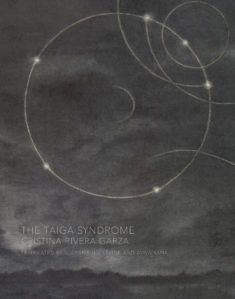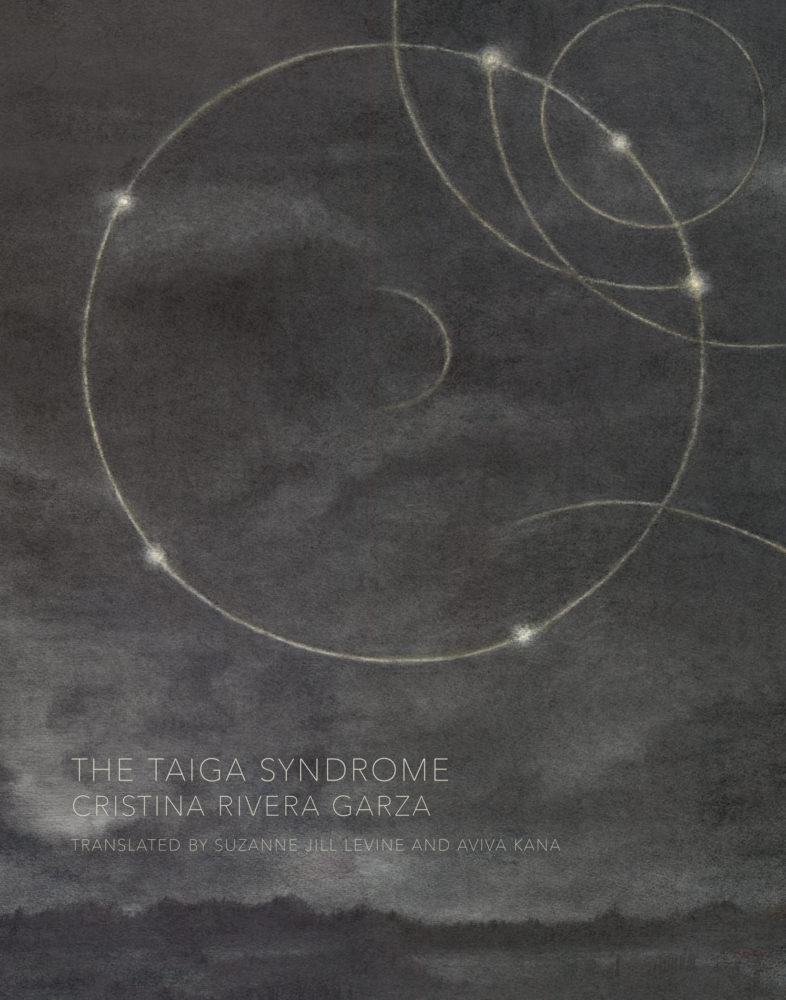
buy this book from our distributor NYRB
Cristina Rivera Garza is the author of numerous works of fiction and non-fiction. Originally written in Spanish, these works have been translated into English, French, Italian, Portuguese, Korean, and more. Born in Mexico in 1964, she has lived in the United States since 1989. She is Distinguished Professor in Hispanic Studies and Director of Creative Writing at the University of Houston and was awarded the MacArthur “Genius” Grant in 2020.
Suzanne Jill Levine has received many honors for her translations of Latin American literature. She is the author of Manuel Puig and the Spider Woman: His Life and Fictions (FSG) and The Subversive Scribe: Translating Latin American Fiction (Dalkey Archive Press). Her editions include the Penguin Paperback Classics series of Jorge Luis Borges’s essays and poetry.
Aviva Kana is a PhD candidate in Hispanic literature at the University of California, Santa Barbara. Her work focuses on Latin American literature, gender, translation, and applied linguistics. Her translations have been published in Review: Literature and Arts of the Americas, PEN America, Latin American Literature Today, and Fiction.
The Taiga Syndrome

buy this book from our distributor NYRB
“[T]here is no one writing novels as phantasmagorically exquisite as Cristina Rivera Garza’s. The Taiga Syndrome, which is both quietly poetic and narratively unhinged, is a crucial addition to her distinguished oeuvre.” —Daniel Borzutzky
*Winner of the 2019 Shirley Jackson Award*
For news and events, please follow us on Instagram or sign up for our newsletter.
A fairy tale run amok, The Taiga Syndrome follows an unnamed Ex-Detective as she searches for a couple who has fled to the far reaches of the earth. A betrayed husband is convinced by a brief telegram that his second ex-wife wants him to track her down—that she wants to be found. He hires the Ex-Detective, who sets out with a translator into a snowy, hostile forest where strange things happen and translation betrays both sense and one’s senses. Tales of Hansel and Gretel and Little Red Riding Hood haunt the Ex-Detective’s quest into a territory overrun with the primitive excesses of Capitalism—accumulation and expulsion, corruption and cruelty—though the lessons of her journey are more experiential than moral: that just as love can fly away, sometimes unloving flies away as well. That sometimes leaving everything behind is the only thing left to do.
*
Listen to Cristina Rivera Garza speak to David Naimon about The Taiga Syndrome on the “Between the Covers” podcast, here.
*
“Innovative Mexican author Rivera Garza’s dazzling speculative noir novel is narrated by a woman hired to find a man’s missing second wife. . . . As she tracks the mysterious couple over snow-covered trails in the boreal forest, the universe becomes eerie and unpredictable. She encounters a feral boy, a ferocious wolf, earthy villagers and wild lumberjacks. Rivera Garza invokes Hansel and Gretel as she spins her marvellous, atmospheric tale.” Jane Ciabattari, “The 10 Best Books of 2018” BBC.com
“This novel, in a translation by Levine and Kana, is taut, lyrical, and strange, and it fits right in with Dorothy, A Publishing Project’s commitment to work that challenges what genres and forms can do. Like the best speculative fiction, it follows the sinuous paths of its own logic but gives the reader plenty of room to play. Fans of fairy tales and detective stories, Kathryn Davis and Idra Novey, will all find something to love. An eerie, slippery gem of a book.” Kirkus Reviews [starred review]
“As lyrical as a poem (‘Look at this: your knees. They are used for kneeling upon reality, also for crawling, terrified. You use them to sit on a lotus flower and say goodbye to the immensity’) and as fantastic as a fairy tale, Rivera Garza’s gorgeous, propulsive novel will haunt readers long after it’s finished.” Publishers Weekly [starred review]
“A Lynchian noir from one of Mexico’s best novelists tracks a missing couple in a ravaged no-man’s-land, weaving a mystery out of fairy tales, disaster capitalism, and shadowy afflictions.” Vulture
“Readers of this book will encounter one of the most fiercely original literary voices from Latin America.” Ignacio M. Sánchez Prado, Los Angeles Review of Books
“This insanely creepy & brilliant book by the incomparable Cristina Rivera Garza will keep you awake at night. Garza is a master of atmosphere. A detective novel directed by David Lynch & narrated by Bolaño.” Mark Haber, Brazos Bookstore
“Wood, snow, blood: old stories. The witch in the forest, the breadcrumb trail, the grandmother-skinned wolf—everybody’s here, in this wild little book, breath steaming humid in the cold air.” Sarah McCarry, Tor.com
“Rivera Garza belongs to the tradition of iconoclastic writers who question why our world has to be the way it is. This is the sort of powerful inquiry that often brings art to its most immersive, rewarding, and generative place. Read her books and explore your own taiga.” Veronica Esposito, Literary Hub
“Mystery, sci-fi, Socratic dialogue, retelling of ‘Hansel and Gretel’: The Taiga Syndrome is a delightful shape-shifter of a novel.” Jonathan Woollen, Politics & Prose
“[A]n explosive writer yet to be fully accounted for in English.” Lina Meruane
“Cristina Rivera Garza does not respect what is expected of a writer, of a novel, of language. She is an agitator.” Yuri Herrera
“In plain, lyrical language, [Rivera] Garza drapes a poetic hush over the narrative, creating an unsettling fable-like world. It’s a mystery that creeps, with careful, steady steps.” Laura Adamczyk, The A.V. Club
“The contemporary Latin American detective novel is a form that uses the individual’s rollicking quest as a means of resistance against repressive structures and the violences they engender. Cristina Rivera Garza’s The Taiga Syndrome, in this stellar translation by Suzanne Jill Levine and Aviva Kana, gives English-language readers a lyrically luminous take on the genre while not skimping on its adventurous antics. If The Taiga Syndrome is a book of illness, it’s also about exile, disappearance, borders, love, language and translation, desire, capitalism and its discontents, fairy tales, and what it means to be possessed by the madness of others and the madness of ourselves. The murmurs that haunt the detective in The Taiga Syndrome evoke the history of Mexican fiction, most notably Juan Rulfo. But this is not a religious state of purgatory. It’s more like Apocalypse Now fused with the worlds of Clarice Lispector and Jorge Luis Borges. In other words, there is no one writing novels as phantasmagorically exquisite as Cristina Rivera Garza’s. The Taiga Syndrome, which is both quietly poetic and narratively unhinged, is a crucial addition to her distinguished oeuvre.” Daniel Borzutzky
“What [Rivera Garza] has created here is a diary of longing, anxiety, trauma; a record of the tension between our deepest, most personal forests and the ways that we choose to preserve them.” The Arkansas International
“So far so noir, except that this summary, along with every other summary I’ve seen in reviews and copy for The Taiga Syndrome, fails to give an accurate impression of the experience of reading the book. First, the story is nonlinear, not in a Memento kind of way but in a You-realize-time-is-an-illusion-don’t-you? one. What there is in the way of plot—and there is plot here—is dominated by an obsession with language.” Ploughshares
“Diaphanously translated by Suzanne Jill Levine and Aviva Kana, this deceivingly spare, noir fairy tale can be read (devoured) at a sitting, but the subconscious wounds it (in)exacts may fester in one’s non-fiction ever after.” Minor Literature(s)
“The Taiga Syndrome by Cristina Rivera Garza is a dark, daring contemporary fable with echoes from the past. Small, short, covered in gray, it sparkles on the page and dazzles the mind.” Sjón [on Twitter]
“Come for the satisfying sense of utter disorientation, stay for the gangly homunculus that bursts out of the woman’s mouth in the middle of the night.” Literary Hub, “Four Haunting Books for the Halloween Season”
“[Rivera] Garza doesn’t stop with fairy tales, however; she inverts traditional tropes from any number of genres to great effect. The subject of the mystery is not the crime or even the victim, but the detective. The unreliable narrator reports on her own unreliability.” Shelf Awareness
“One of Mexico’s greatest living writers, apparently, and—go figure—we are just barely beginning to catch up to what she has to offer. . . . I’m excited.” Jonathan Lethem
Cristina Rivera Garza is the author of numerous works of fiction and non-fiction. Originally written in Spanish, these works have been translated into English, French, Italian, Portuguese, Korean, and more. Born in Mexico in 1964, she has lived in the United States since 1989. She is Distinguished Professor in Hispanic Studies and Director of Creative Writing at the University of Houston and was awarded the MacArthur “Genius” Grant in 2020.
Suzanne Jill Levine has received many honors for her translations of Latin American literature. She is the author of Manuel Puig and the Spider Woman: His Life and Fictions (FSG) and The Subversive Scribe: Translating Latin American Fiction (Dalkey Archive Press). Her editions include the Penguin Paperback Classics series of Jorge Luis Borges’s essays and poetry.
Aviva Kana is a PhD candidate in Hispanic literature at the University of California, Santa Barbara. Her work focuses on Latin American literature, gender, translation, and applied linguistics. Her translations have been published in Review: Literature and Arts of the Americas, PEN America, Latin American Literature Today, and Fiction.
Dark Sun by Christine Ödlund (watercolor and pencil on paper, 72 x 53 cm, 2011)
Christine Ödlund lives and works in Stockholm, Sweden. Learn more about the artist and her work at her website.

